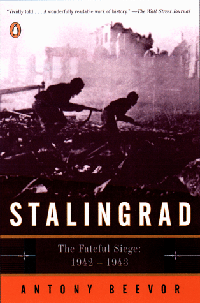 |
||||
![]()
- General
- Alternate History
- Air / Aviation tactics
- Aircaft (US)
- Aircraft (German)
- Aircraft (British)
- Aircraft (Japanese)
- Aircaft (Others)
- Army (US Army)
- Army (German Army, Waffen SS)
- Army (Japanese Army)
- Battle of the Atlantic
- Battle of Midway
- Computers and WWII
- Hitler
- Holocaust
- Intelligence in the War
- Iwo Jima
- Macarthur, Douglas
- Narratives of the War
- Naval Warfare
- Navies (General)
- Navies (US)
- Navies (Germany)
- Navies (Italian + French)
- Navies (Japanese)
- Navies (Bristish)
- Normandy
- Pearl Harbour
- POWS
- Rommel, Erwin
- Snipers
- Submarine Warfare
- Submarines (U-boat)
- Tank Warfare
- Tanks ( Panzer, German Forces)
- Tanks (American Forces)
- Tributes to the Soldiers of
WWII.
- War in the East
- War in the Pacific
- War in the West (Battle Of Britain)
- War in the West (1944 fall
of Berlin)
- Women in the War
![]()
- General
- Sniping
- Weapons
![]()
- General
- Aircraft (General)
- Aircraft (US)
- Aircraft (Soviet)
- Aircraft (European)
- Aircraft tactics
- Gulf War
- Jane's Recognition guides (Guns,
Aircraft, Ships, Tanks, Commercial
Aircraft)
- Sniping
- Marines
-
Well Known Military Authors
- John Keegan
Korea
- American
Airpower Strategy in Korea, 1950-1953
- Night Fighters
over Korea
|
Stalingrad Author: Antony Beevor
|
Customers
who bought this
|
|
|
Decription:
Reviews Devasting portrait of the freezing hell called
Stalingrad, October 5, 2000 Beevor gives the reader detailed information from the viewpoints of everyone involved in this battle: Hitler and Stalin, the generals on both the Soviet and German sides, right down to the officers and soldiers who fought in conditions which went beyond human comprehension. "Stalingrad: The Fateful Siege, 1942-1943", is unstinting in exposing the atrocities committed by both sides. It also exposes the follies and blunders committed by the Germans and Soviets. Readers will learn the plight of Soviet citizens who chose to fight for the Germans, understand the fate of Soviets captured by the beseiged German garrison, endure with doctors who have no medicine to treat their patients, witness the harsh fate which awaited Soviet citizens and soldiers who showed any signs of "defeatism", and see the strategies which resulted in German defeat right at the moment Hitler believed that he had won. This book is a masterwork of the horror man can inflict upon man. I read this book during the heat of a summer which broke records, yet I got chills from reading of the freezing hell of Stalingrad. Buy it now!
Blood, ice, lice, brutality, corpses ¿ and heroism,
January 16, 2001 STALINGRAD begins, as it must, on June 21, 1941 with the launching of Operation Barbarossa, Hitler's invasion of the Soviet Union by three Army Groups - North, Center and South. Beevor first summarizes from a wide perspective Army Group Center's attack on, and repulse from, Moscow, and Army Group South's surge towards the Volga River and the Caucasus Mountains. Then, the focus is narrowed onto the Sixth Army's and Fourth Panzer Army's drive to Stalingrad and the Volga in the summer of '42. The last three-quarters of the volume then limits itself to the Stalingrad siege, the Soviet counterattack on, and encirclement of, the Sixth and Fourth Panzer armies, their subsequent subjugation, and, finally, the fate of the 91,000 Germans taken prisoner. The main characters of the drama are all brought onto the stage: Hitler, Paulus, Schmidt, von Richthofen, Stalin, Zhukov, Yeremenko, Chuikov, and Rokossovsky. This is a very reader-friendly account for the simple reason that the author supplies enough information, including maps, to keep the narrative moving along without getting bogged down in the minutiae of minor troop movements and a superabundance of unit designations. He's also included (in the paperback edition) two adequate sections of photographs - always a much appreciated touch. The volume met, if not exceeded, my expectations, and I learned a lot. During the Siege, there was desperate heroism on both sides. But, it was also war at its most brutal in ways too many to recount. I shall finish with two excerpts, both regarding war prisoners, first from the Russian viewpoint, then the German. " 'When the (German) retreat started on 20 November, we (Soviet POWs) were put instead of horses to drag the carts loaded with ammunition and food. Those prisoners who could not drag the carts as quickly as the Feldwebel wanted were shot on the spot. In this way we were forced to pull the carts for four days, almost without any rest.' " "Anger at the (prison camp) conditions led to (German) prisoners scraping handfuls of lice off their own bodies and throwing them at their (Soviet) guards. Such protests provoked summary execution."
|
||
All info and pictures in this site appear courtesy of the following web sites.
All questions and inquiries should be made to the webmaster.
Last updated : Monday, November 18, 2002 0:36 AM








